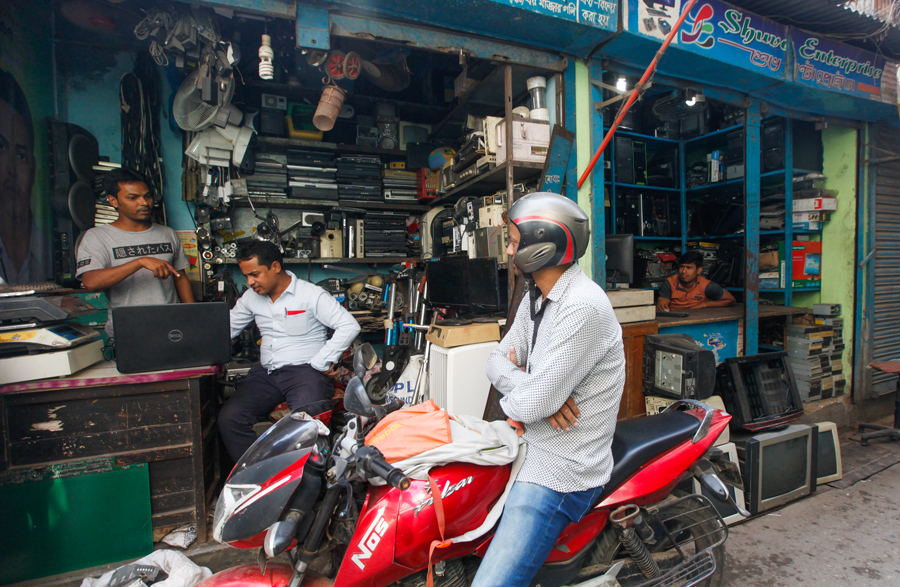Extracting valuable elements contained in electronic waste, mostly known as e-waste, such as copper and gold, can be a good source of income in developing or newly industrialized countries, and Bangladesh is certainly no exception in this regard. E-waste can be defined as reuse or recycling of scrapped electrical or electronic devices. Azizu Recycling & E-Waste Company Ltd, a waste management firm operating since 2006, has set up a factory in Narayanganj to recycle e-waste and turn the by-products into reusable items. Licensed by government organizations such as the Department of Environment, Bangladesh Telecommunication Regulatory Commission and Atomic Energy Commission, this firm is involved in buying e-waste from corporations and local agents and literally turning trash into treasure. “Recycling these items can lead to the extraction of many metals such as copper, iron, aluminium and even silver and gold. We export some of them as per agreement with foreign trading partners, the rest is sold for domestic use,” said Malik Hossain Al-Mamun, general manager of Azizu Recycling & E-Waste Company Ltd. Another firm, Junk Enterprise collects e-waste from across the country and sells it for further processing to recycling firms like Azizu Trading Company. “We are an e-waste trading company,” said Abdur Rahim, CEO of Junk Enterprise. “Our job is to collect e-waste from our agents across the country. We then sell it to recycling companies.” Production of electronic waste has increased alarmingly thanks to the rapid digitization of Bangladesh over the recent years. A study conducted by the Institute of Cost and Management Accountants of Bangladesh (ICMAB) titled “E-waste management: A study on legal framework and institutional preparedness in Bangladesh” found that most of the E-waste dumping and storage sites of Dhaka city are located in Nimtali, Dholaikhal and Jinjira of Dhaka South City Corporation. Air Commodore Md Shafiqul Alam, chief waste management officer of Dhaka South City Corporation, told the Dhaka Tribune that they did not have the authority over e-waste management or mechanism to separate e-waste from regular solid waste. Meanwhile, the Department of Environment has drafted a comprehensive legislation on e-waste management titled “Electronic and Electrical Waste Management Rule”. The proposed law is now awaiting the ministry’s approval, Md Tajminur Rahman, deputy director (AQM) of the Department of Environment, told Dhaka Tribune. “Our job is now to provide clearance to the third-party organizations that work with e-waste management. Then they collect, separate and recycle the waste,” he said. “When major corporations such as Grameenphone or Banglalink decide to sell their e-waste to third party waste management firms, we inspect those materials and then provide them with a No-Objection-Certificate (NOC). After that they can sell their waste to licensed recycling companies.” Experts estimate metal deposits in e-waste to be up to 40 to 50 times richer than ore extracted from mines. According to the Global e-Sustainability Initiative (GeSI), 320 tons of gold and over 7,500 tons of silver are now used annually to make PCs, mobile phones, tablets and other new electronic and electrical products globally. Proper management of e-waste is necessary for preventing health and safety hazards, but this industry can grow as a potential source of expensive materials for domestic use and export, if allowed to flourish.



Recent Comments